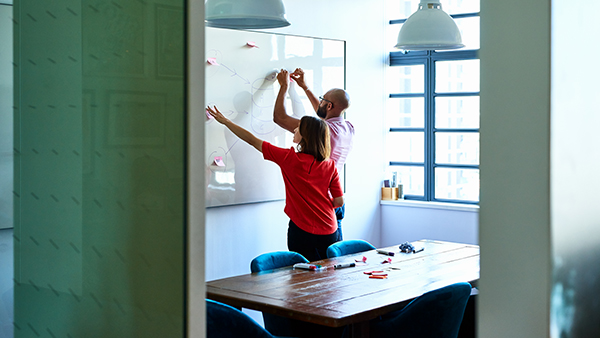Please excuse what I fear will be a bit of a stream of consciousness but I have a lot in my head and not enough time to process it properly. Maybe that’s what blog posts are for.
Regular readers will know that I often ponder on what it is that makes small groups of volunteers work effectively together. Over recent years, we here at RSA HQ have tried to make it much easier for Fellows to meet together locally, or on the basis of a shared interest, and have encouraged them to focus on what difference they could make if they had a good idea and acted upon it. In this we have often had the support of RSA regional committees who are aware that, however good the regional events programme, many Fellows also want events which are more open-ended and action oriented.
This isn’t, by the way, a new idea. When I took over at the RSA, the CoffeeHouse Challenge, in which the Society worked with Starbucks and other partners to provide spaces for Fellows and members of the public to discuss local issues, had just taken place. The CHC was a good idea and some good meetings and enduring initiatives came out of it. However, it felt like an annual bolt-on rather than a different way of thinking about Fellowship. Also, the CHC tended to by-pass the existing regional structures.
Overall we have made good progress:
There are many more local Fellows networks meeting on the basis of shared geography or interest. Concrete ideas and actions are starting to emerge from many of these networks.
The last couple of weeks alone have seen successful gatherings in Sheffield and Bristol, each attended by over 50 Fellows.
There is a steady flow of Fellows’ project bids into the Catalyst Fund and, as we all learn about the process, the bids are getting stronger.
But I still think there is much for us to learn about what it is that gets a group to work effectively. Which is why I was excited to see this post from Jamie Cooke, one of our network managers. Many Fellows will, of course, know Tessy Britton from her work as Chair of our Fellowship Council. It looks as though she has developed a really powerful way of getting a group engaged and creative.
While Tessy, and the work she is doing with RSA Fellows, represent the sunny side of the street,I spent some time in my NCVO lecture last week exploring the issues which often sabotage attempts to engage and empower members and citizens - for example, the problem that disruptive people tend to drive constructive people away more quickly and effectively than vice versa. I also described how people who are fascinated by internal governance often end up wielding much more influence than those focussed on achieving change in the world.
There is here a connection to a broader question keeping me awake at night: the structural weakness of democracy. This has been a recurrent sub theme in three of my four annual lectures (the exception was the second, which wasn’t much cop anyway to be honest). It is early days, but my current intention is to make this the focus of next year’s effort.
In essence, I want to argue that democracy only works if we are willing – as a society – to put in the work necessary to create the conditions for its success. Also, national democracy may be particularly problematic when counties need to go through long term restructuring (as, arguably does our own). Indeed, when concerted long term change is needed, benign dictatorship may be better than weak democracy. Of course, my argument will be for strong democracy not benign dictatorship but I increasingly think this is the choice we face.
I will return to this theme tomorrow with reference to lunch with a Middle-Eastern bank and the American mid term elections…..
To correct this error:
- Ensure that you have a valid license file for the site configuration.
- Store the license file in the application directory.
Related articles
-
Announcing the Pupil Design Award winners 2022
Hannah Breeze Aidan Daly
Read about the winners of the RSA Pupil Design Awards 2021 – 2022. The teams have provided us with a range of innovative ideas that tackle challenges in the food, education and built-environment systems.
-
Why the world needs more Mavericks
Ian Burbidge
What can we learn from those ‘Mavericks’ who have long been transforming society and business by going against the grain?
-
Public service innovation and the public entrepreneur
Ian Burbidge
Ian Burbidge retraces the RSA's efforts into public sector reform and all that's been learnt along the way.




Be the first to write a comment
Comments
Please login to post a comment or reply
Don't have an account? Click here to register.